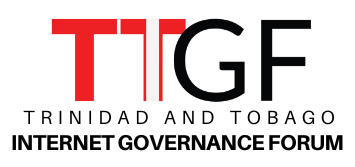Panel Session 1
Unlocking T&T’s ICT Potential for Global Markets
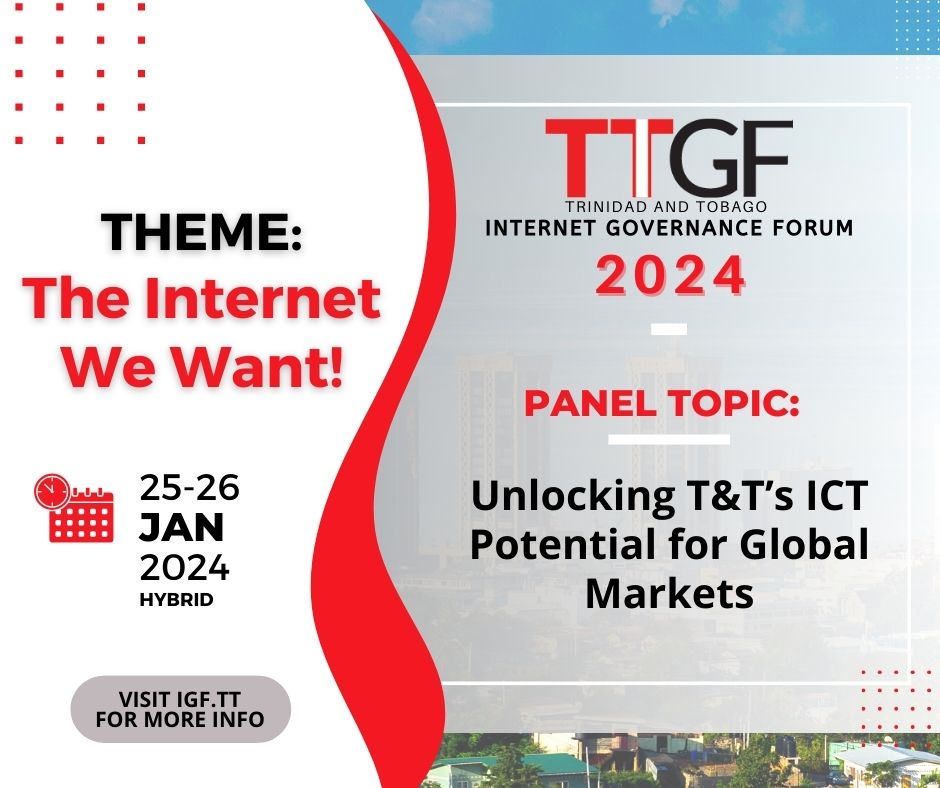
The ICT Industry is huge and rapidly growing. By the close of 2023, the global value of the ICT industry is forecasted to reach USD 6 trillion (Statista Research, 2023). ICT accounts for a wide range of activities including industries related to telecommunications, hardware, software, internet services, data processing and much more. Several interconnected factors account for growth in the ICT industry. Among these are technological advancements and innovation; an increasing demand for digital transformation; growing connectivity and internet penetration; increasing reliance on data analytics and cybersecurity, expansion of e-commerce and digital services and support from the government in the form of ICT policies and ICT-related initiatives.
Around the mid-2000s, Trinidad and Tobago began leveraging its skilled workforce to attract Global Business Process Outsourcing Companies offering a range of ICT-enabled services in areas such as customer service, IT help desk, data entry and back-office operations to name a few.
Should small island developing states (SIDs) like T&T only resign themselves to attracting BPO clients, or is there capacity in other ICT areas export ready to enter global markets?
Research shows that T&T has capacity in the development of software design and application as well as the provision of web development services (NIHERST Research, 2018). Many of these ICT products and services are used in the domestic market to improve the efficiency of operations in local firms but have limited access to penetrating global markets. What are the market access limitations for T&T’s ICT products and services?
Panel Session 2
Training for Digital Transformation
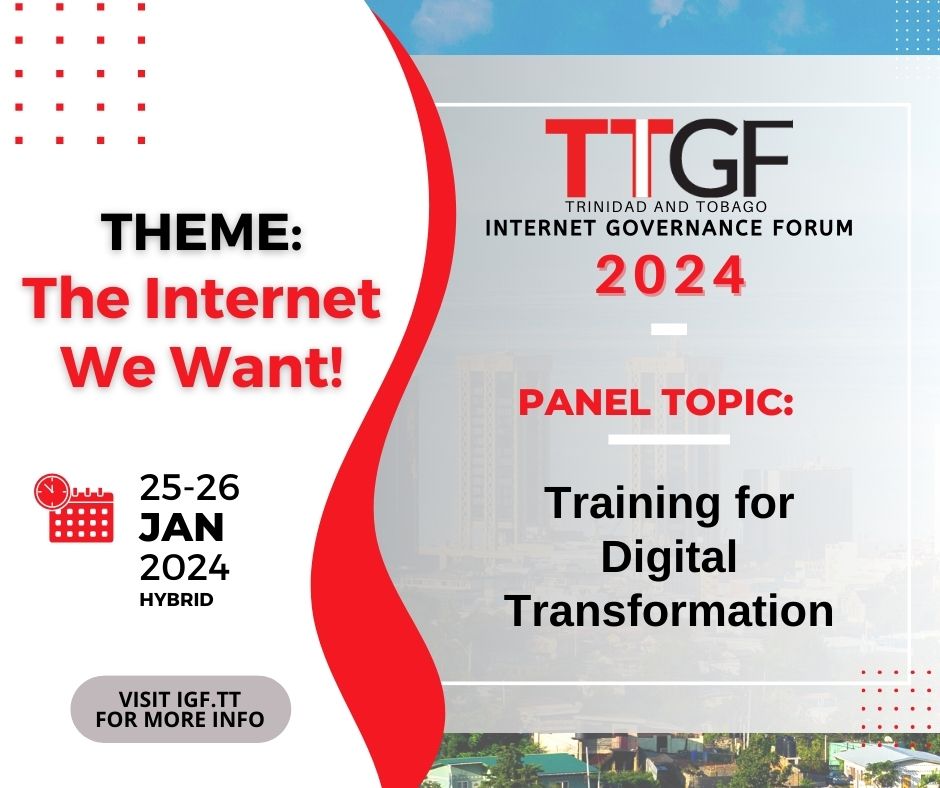
Digital transformation is being undertaken in countries all over the world to improve their efficiency, effectiveness and ability to compete in world markets. However, in T&T and the wider Caribbean, most of the population is not yet digitally literate to the extent needed for a full digital transformation. Digital transformation can allow us to increase the cadre of homegrown developers, who can help us create the Internet we want.
The panel will focus on the need for training the population to take advantage of the benefits of Digital Transformation, the challenges inherent in such training and discuss ideas to overcome those challenges and design successful training to support Digital Transformation.
Panel Session 3
Beyond Fintech: Navigating T&T’s Current Trends Towards the Next Financial Wave
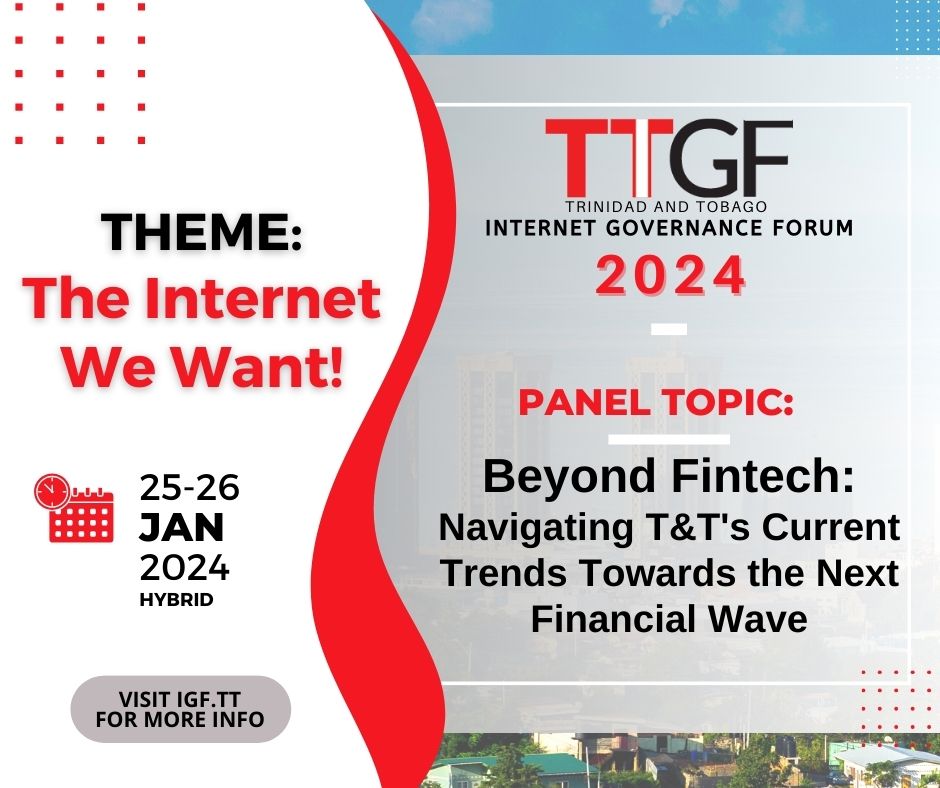
As T&T begins to adopt Fintech locally, what is on the horizon Beyond Fintech? Can/should T&T leapfrog to The Next Financial Wave?
We bring together a group of thought leaders in this space to discuss this important topic.
Panel Session 4
The AI We Want – Where Is It At and Where is it Heading?
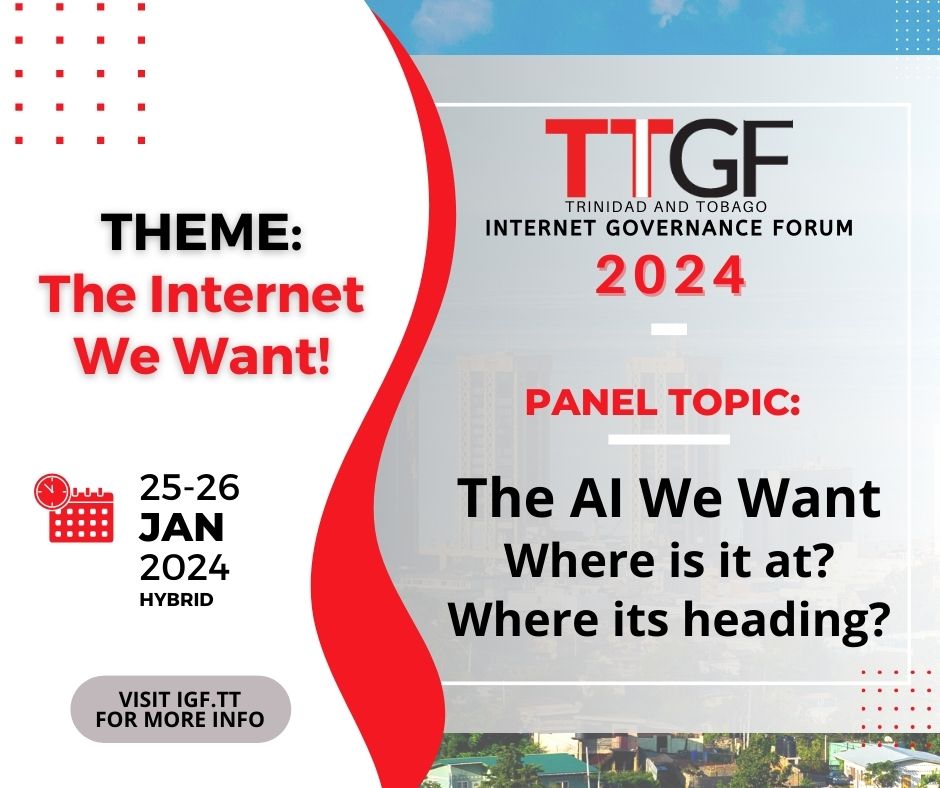
In exploring “The AI We Want” within the broader theme of “The Internet We Want,” it is imperative to consider how artificial intelligence can be harnessed to address the unique challenges and opportunities in the region. The focus should extend beyond merely adopting AI technologies and delve into shaping a vision that aligns with the values and aspirations of the region. The Internet We Want should be a space where AI empowers local communities, enhances education, and supports sustainable development.
This entails:
- Fostering inclusivity
- Ensuring ethical AI practices
- Leveraging technology and training to bridge socioeconomic gaps.
By fostering a collective vision for the AI, We Want, the region must navigate the digital landscape with confidence, harnessing the potential of artificial intelligence to drive sustainable development, economic growth, and social well-being.
